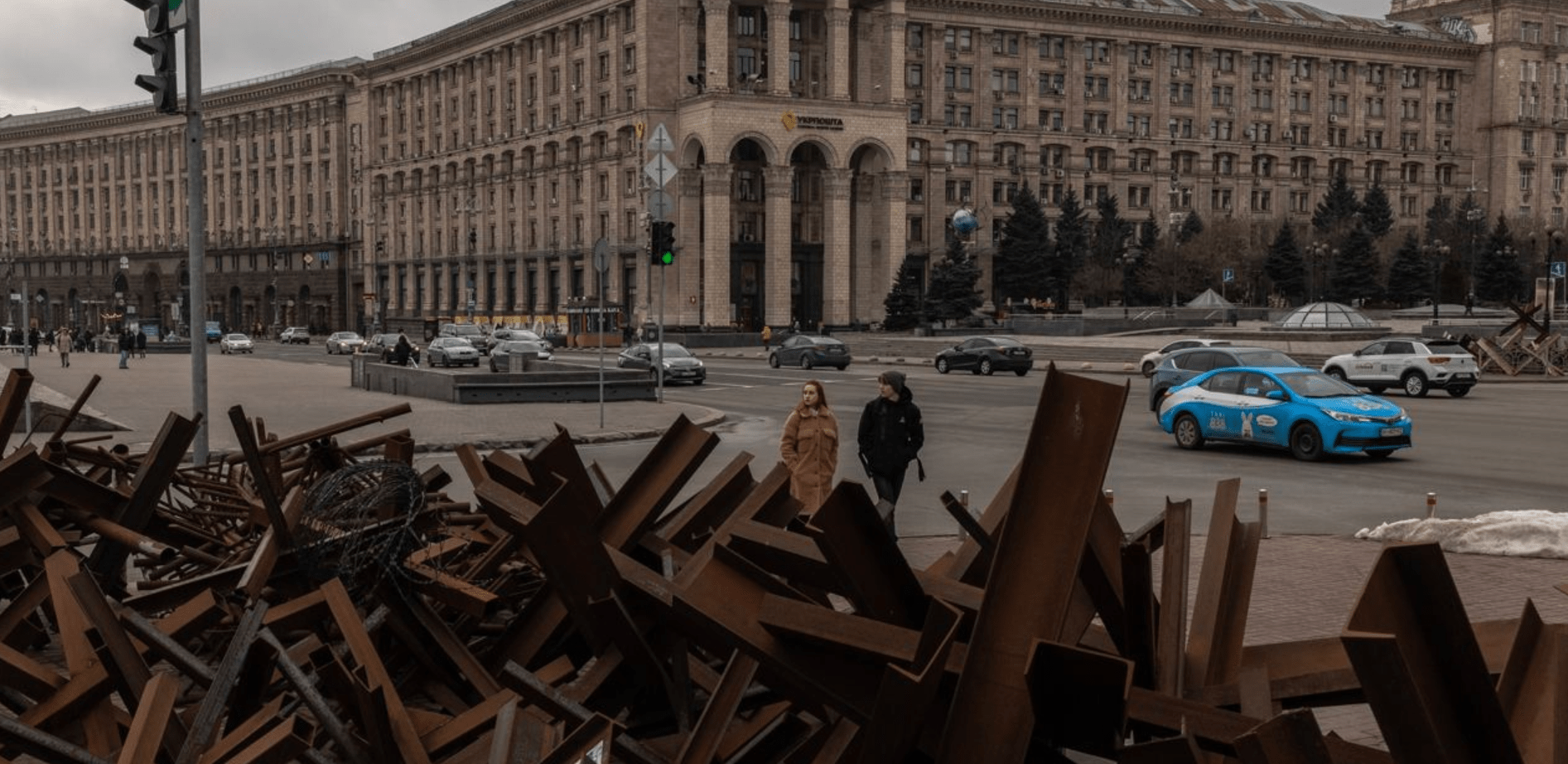I KNEW THERE’D BE A WAR, BUT I WASN’T READY FOR WHAT IT’S LIKE
I wake up from the sound of explosions and immediately I realize it has begun.
It is dawn now, the sky cut with smoky traces from missiles. My body is trembling. I am running around the apartment, collecting documents, shoving a first aid kit into my backpack. My 76-year-old father, who defeated Covid three weeks ago, is still in the hospital. The virus damaged his brain so he partially lost his memory and is barely mobile. I call his roommate to tell him that I’m coming as soon as I can.
It’s around 9AM. The streets are filled with people. Everyone I meet has a look of confusion. I think I do too. My consciousness is just not accepting that a new reality has come. There are lots of explosions from the direction of Belgorod, a city in Russia bordering the Kharkiv region where my home is. There is almost no public transportation but finally I reach the hospital.
The neurology department is in turmoil, doctors and staff moving quickly, running down the halls. In an empty ward, I find my father. He’s sitting on the bed with a bag on his lap, personal belongings and medicines inside. No time to finish his treatment. We’re heading home, ominous sounds all around.
Bottles of water run out by the end of the day. I spend the whole afternoon going from store to store buying whatever groceries I can find on the nearly-empty shelves.
Next day. Power outages begin. The water supply and heating stop. As soon as there’s a pause in the shelling, I know our utility workers are out trying to make repairs. I feel grateful for a short time to charge my phone and for some drinkable water. Public transportation is no longer running at all. It’s February and it’s cold.
And still my mind keeps saying, no, we can’t be in a full-scale war.
February 26th. It’s clear that there will be no heating. The shelling has ruined the boiler room for our building. Even so, the cold is not as frightening as the silence from our side and the sounds of the Russian bombers. Sirens wail almost non-stop. I know our air defense is destroyed. Enemy planes hit the city every night.
The approaching rumble. My heart misses a beat and I think: “That’s it. The end.” The hum moves away and I hear a distant explosion. I exhale with relief: “Not this time.” Now come the calls: “How are you?” … “Alive.” … “Very close, it’s scary.” … “The house shook.”
Thirst, constantly. And fear that water is running out. I suddenly realize I haven’t eaten for more than a day. I can’t do this, I can’t cope with this nervous tension. I’m thinking of my psychologist friend who once worked in the Ministry of Emergency Situations and write to ask her for help. She calls back right away offering therapy: “Try to feel this part of your body … now this part …” But I can only hear the air raid howling. I don’t feel my body at all.
Day 5, February 29th. Food, medicine, and water are extremely low. I decide we have to escape from the city now. Taxis are still taking people to the station to the evacuation trains, but not from my area. I check with friends on social networks for someone who can help us and some volunteers immediately agree. Still, because of the frequent shelling in my area, they do not reach us for two days.
On the night of the evacuation we are in the bomb shelter. No sleep. It’s cold and dusty. On the concrete floor one’s body freezes instantly. At six in the morning we return to the apartment, and at seven o’clock the volunteers call me. They are ready to come and take us out. Twice I have to call them back and ask them to wait because we are under fire.
A minivan arrives. There are no seats so we sit on the floor of the vehicle. The rescuers have already picked up a woman with her two children and she’s holding them tight, her gaze tense and frightened.
I hand the volunteers some money with a heart full of gratitude. Knowing they’re doing this for free, I’d at least like to pay for the gas. Young Anton, the driver, embarrassedly turns his blue eyes aside. Smiling, he says: “I won’t take it. You’ll need it.” Then I hand him an apple…
– A month later, during the evacuation of elderly people, Anton will die from a Russian rocket fired at a civilian area. The bread they are delivering will be splashed with his blood. Anton will leave behind a mother, young wife, and a baby. –
